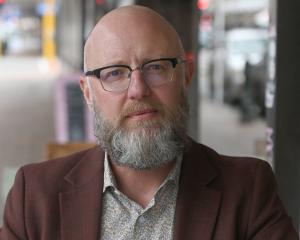A Dunedin carer’s attempts to bring conversations about palliative care to a wider audience has been acknowledged at the New Zealand podcasting awards.
Otago Hospice care nurse Denise van Aalst told the Otago Daily Times that winning the bronze medal in the Best Interview Podcast category for her podcast Ending Life Well came as a "complete surprise".
The 29-episode series was launched about two years ago, and covered subjects such as self-care, legal matters, funeral planning and whānau manaaki (families who provide care to a kaumātua at end of life).
"We knew that our podcast was helpful for people.
"We don’t talk about death and dying in polite society, and people are often now going in and helping to care for somebody at the end of life with little experience or knowledge, and they don’t know where to go to get that."
Ms van Aalst said when she started the podcast, she had little knowledge of the format.
"I had just started listening to them and was looking for someone [addressing] palliative care, found one that was really bad, and it just triggered me.
"I’ve been incredibly lucky that I got connected to the right people who were able to take us in the right direction."
The podcast series helped inform Otago Hospice’s kowhai programme for palliative care, she said.
"The core programme we run at hospice; we’re only able to offer to people who are on the hospice programme.
"So for me, there’s been huge joy that we can now share that information much more widely to anybody, not just people who are involved with hospice directly."
More than 10,000 users had downloaded the podcast.
"For a very, very niche-market podcast that’s an incredible result, I reckon.
"The podcast is a way that people can access that information about palliative care at a time and a place that suits them, and in a way that suits them."
Although the podcast was "sitting" there for the moment, she did not rule out extending the series at a later date.
"We are looking at creating a resource for people working in residential care.
"I’m also hoping to do some interviews with carers in the future, so that we can allow people to hear what it’s like to be a carer."
The reactions from the listeners had been "humbling".
"So many of them have said it helped them understand that what they were going through with a loved one, no matter how scary it might seem, was actually quite normal.
"You know, just being able to talk about this normally can be a big deal. It means that people can be reassured that it is OK to talk about these things."











